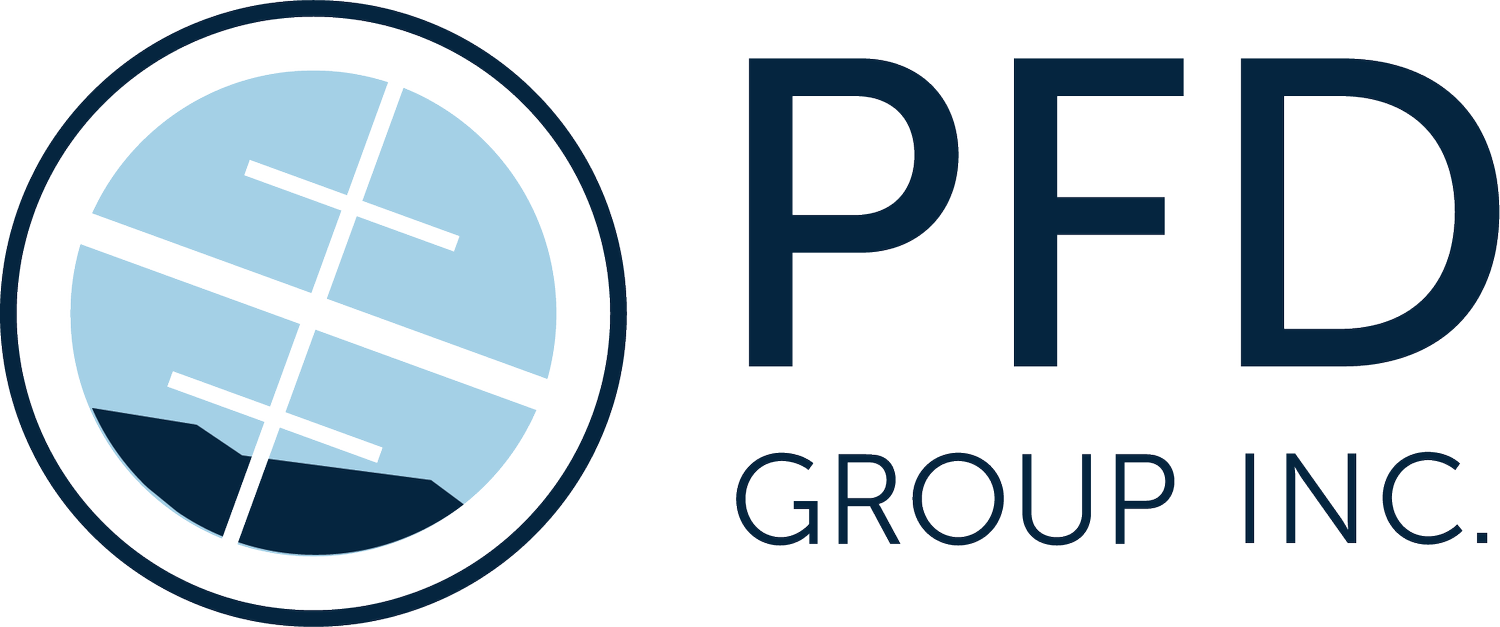As business owners, we know it is quite disappointing when companies with promise prove themselves to be untrustworthy. We know the feeling – opening up our news apps to see a front-page headline of a company with great potential get caught up in a scandal. The large , public scandals, combined with mass layoffs in the pandemic, have created a more hesitant and market that is more distrustful of the business landscape overall.
A photo of PFD team members, and key partners, enjoying a hike in Colorado
How does your company stand out in such a market? Authenticity in purpose. Find out how you want to serve the community, authentically and wholeheartedly pursue that mission, and consider all stakeholders in decisions. Consider this quote:
“The idea has been that corporations exist to maximize shareholder value, but corporations are starting to realize that if you only focus on [financial returns], you create resistance for your growth, and that diminishes shareholder value over the long run. A smarter strategy is one that creates wealth by benefiting other stakeholders. When your growth is good for the community, employees, customers, government, the country, environment, the world, and thereby good for shareholders, that is the ultimate strategy, because everybody wants you to win.”
Genuinely investing in a purpose and mission, and authentically serving others, is a way you can build trust and loyalty with customers. However, cultivating authenticity is not easy – it takes real, disciplined work and intentional thought.
To cultivate authenticity in your business, you will need to:
Decide what’s most important to you.
While the needs of all stakeholders should be taken into consideration, every business can focus on a specific core purpose and cause. For example, while every business can take strides to reduce their carbon footprint, and source ecofriendly products, Patagonia has taken environmental conservation to heart, making their activism and ecofriendly practices a central part of their day-to-day operations. Conversely, another wonderful company, Capital III, leverages their portfolio companies to transform the lives of prisoners – employing them with good jobs, conducting leadership and skills training, and helping to ensure successful reentry. Both companies excel in their respective missions – contributing positively to the world that we live in. To help you understand where you want your business to make the most impact, check out our Legacy Vision tool.
Create accountability.
The next step in cultivating authenticity is to create systems of accountability, both in your personal leadership development and in your business.
Accountability in Personal Leadership Development.
The most effective way to cultivate accountability in personal leadership development is to get yourself into a peer group of similar business leaders. This peer group (also called a cohort or mastermind group) should consist of people who share the same experiences to mentor one another. These people should have similar goals of service as you, who will support you in your challenges, and who keep you in check to your moral obligations. They are the people who will candidly share their experiences and wisdom, to not only help you learn quicker, but also give input to make more holistic well-rounded decisions.
Invite relevant stakeholders to the table for decision making.
In creating systems of accountability for your business, it is important that you give the people that are impacted by your decisions a chance to voice their opinion. For example, Monty Moran, when he was Co-CEO of Chipotle, made it a priority to visit as many restaurant locations as possible, talk to the workers there, and from that develop his priorities. With consideration of his employees, Monty then developed a managerial pipeline, creating better opportunities for employees to advance with Chipotle. This simple act of having real, authentic conversations about the needs of employees, and following through with programs to benefit them, creates a level of trust and shows authenticity in caring.
Own up to past mistakes and learn from them
Companies are run by humans. As such, no leadership team will produce 100% perfect decisions. Perhaps, before the Covid-19 pandemic, your team was pursuing an aggressive investment strategy, reducing your cash on hand, so when the recession hit you had to terminate the employment of some people. If your company really cares about your employees, and you found yourself in this situation, let the employees impacted know that you recognize your mistake, and that you apologize for the way that mistake affected them. Then, you could put genuine effort into helping them in finding a new position. Chances are that the candor with which you approach this situation will soften the frustration and hurt the employee may feel. In the future then, you could potentially learn to make sure to have more cash on hand to mitigate risk, or not overextend on payroll. While we will inevitably make mistakes, it is important that we learn from them and strive to be better in the future.
With these three considerations, we can strive to create better, more authentic businesses that our customers, communities, and employees can trust.











